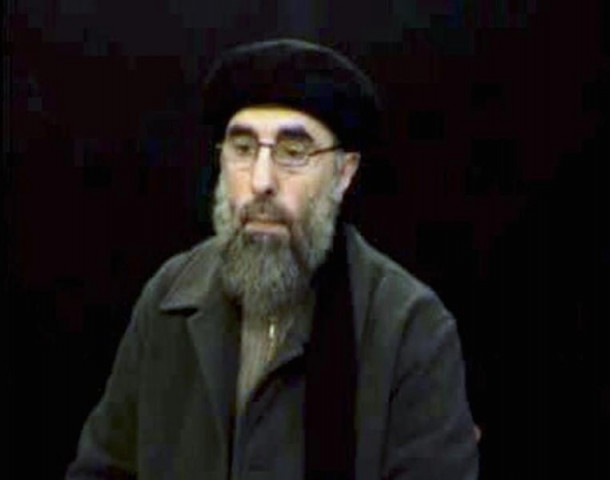Afghanistan signs draft pact with Taliban-allied militants
President Ghani's govt is making headway in drawing insurgent groups away from battlefield and into political process

A video grab shows Hezb-e-Islami leader Gulbuddin Hekmatyar February 22, 2007. PHOTO: REUTERS
Hezb-e-Islami leader Gulbuddin Hekmatyar is a veteran of decades of Afghan war and rights groups have accused his group of widespread abuses, particularly during civil war in the early 1990s, when he briefly served as prime minister.
The United States has also linked the group to al Qaeda and the Taliban and put Hekmatyar on its designated terrorist list.
The group has played only a minor role in the Taliban-led insurgency in recent years and the deal is unlikely to have any immediate practical impact on security.
Afghan peace process: Kabul wants 10 ‘influential’ Taliban on the table
But with little sign that the Taliban are ready to join peace talks, the deal offers President Ashraf Ghani's government a concrete sign that it is making headway in drawing insurgent groups away from the battlefield and into the political process.
Mohammad Khan, deputy to government Chief Executive Abdullah Abdullah, said the draft accord was a positive step but more work would be needed for a final deal.
"We are optimistic about this agreement and we strongly support it," he told reporters in Kabul before the accord was signed by a delegation from Hekmatyar's party and officials from Afghanistan's High Peace Council. But he added: "This doesn't mean it's finalised."
The announcement came as officials from Pakistan, the United States, China and Afghanistan held another round of meetings, in Pakistan, aimed at laying the ground for peace talks with the Taliban, who have refused to join the talks.
Afghan peace talks: Taliban reject ‘futile, misleading negotiations’
Human rights groups have criticized the move toward a deal with Hekmatyar's group but the pressure on the government for some sign of progress in bringing peace appears to have outweighed the concerns.
Under the terms of the draft, members of Hezb-e-Islami would be offered an amnesty, similar to that offered in 2007 to warlords accused of war crimes as well as a release of prisoners held by Afghan authorities.
The government would also work to have the group removed from a UN black list.
The group, which for years had close ties with Pakistan, would not join the government but would be recognized as a political party and be involved in major political decisions.
In 2003, the US State Department included Hekmatyar on its terrorist list, accusing him of participating in and supporting attacks by al Qaeda and the Taliban.



















COMMENTS
Comments are moderated and generally will be posted if they are on-topic and not abusive.
For more information, please see our Comments FAQ